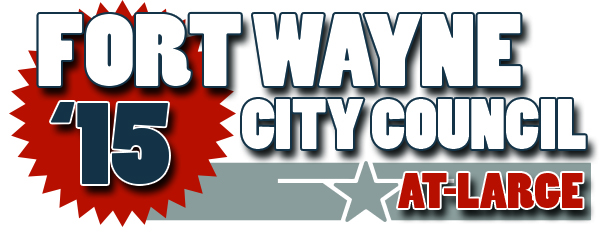
Duties: Council's nine members pass ordinances, resolutions, orders and motions. They also control city property, approves the budget and can award economic development incentives.
Annual salary: $22,279
Term: Four years, beginning Jan. 1.
The Candidates
Republicans
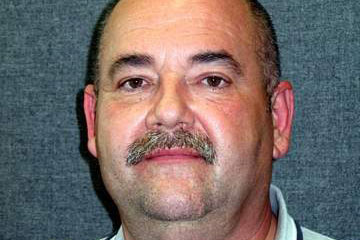
Robert A. Armstrong
Age: 55
Occupation: Allen County Solid Waste District
Education: Northrop High School
Family: Widowed, one child
Contact: homerun1604@frontier.com
Why am I running for council: I see the need for fresh blood and ideas. I've been on County Council seven years, but that is a “money” position. I've always been interested in setting policy.
Why should you vote for me: I would bring a common-sense approach. I keep my mouth shut, listen and learn.
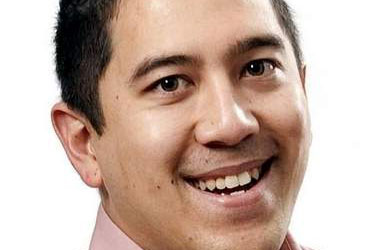
Michael Barranda
Age: 36
Occupation: attorney
Education: East Noble High School, University of Notre Damea, Loyola University (Chicago) School of Law
Family: married, two children
Contact: michaelbarranda.com
Why am I running for council: It makes the most sense for me and making the community better is where my passion lies. It would also leave time to spend with my family.
Why should you vote for me: I have demonstrated my work ethic and conservative values.

Lee Bradley
Age: 67
Occupation: retired from Marine Corps, Army
Education: Manchester High School, IPFW
Family: married, six children
Contact: www.voteleebradley.com
Why am I running for council: This is a good time to run. We've had too much of the same for too long and it's time for a change. I want to give back to the community as I did for the military.
Why should you vote for me: “(Because of my military background) I have unique training and leadership skills. I'm able to get the job done and not afraid of getting dirty.”

John Crawford
Age: 66
Occupation: physician
Education: Benjamin Franklin High School, New Orleans; Louisiana State University/New Orleans, LSU medical school
Family: married, one child
Contact: j.n.crawfordmd@gmail.com
Why am I running for council: We've started some things, such as downtown and riverfront development, that I want to see through.
Why should you vote for me: I'm not afraid to make the tough decisions, and I always put taxpayers first. I can provide valuable guidance.
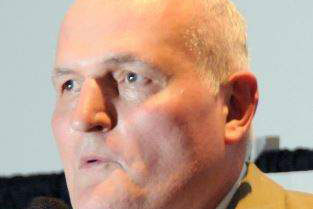
Tom Freistroffer
Age: 64
Occupation: real estate broker and appraiser
Education: Central Catholic High School, Indiana University, University of Notre Dame
Family: married, four children
Contact: tjfappraisals@yahoo.com
Why am I running for council: I've always been interested in serving the community. I was a teacher and coach and studied political science.
Why should you vote for me: I'm at the time in my life when I'd like to give something back to the community. I mirror the community, and I know what it takes to run a business.

Teresa Kay Sutton
Age: 47
Occupation: Owner, Custom Art Screening
Education: Concordia Lutheran High School, Indiana Tech (Indianapolis)
Family: married, two children
Contact: teresa@voteforteresasutton.com
Why am I running for council: Council affects our businesses and way of life.
Why should you vote for me: I'm chair of the Republican Women's group, and decided to step up and do something. There are no women or small-business owners on council.

Eric Tippmann
Age: 42
Occupation: chemistry professor, IPFW
Education: Bishop Dwenger High School, IPFW, Purdue University, Ohio State University
Family: married, three children
Contact: votetippmann.com
Why am I running for council: I looked around and wondered, what can I do? I could either write letters of sit at the (council) table and work to stop the 'brain drain' so I'll be able to see my grandkids more often.”
Why should you vote for me: I'm someone who envisions things. I have local roots and a family with professional accomplishments and well established in the philanthropic area. I can communicate with people age 5 to 95 on a personal, emotional and professional level.
Democrats
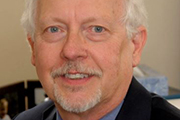
The Rev. Terry Anderson
Age: 65
Occupation: executive director, Just Neighbors Interfaith Homeless Network
Education: Snider High School, Earlham College, Butler University, Indiana University
Family: married, two children
Contact: terry@ihnfw.org
Why am I running for council: I'm very committed to the direction the city is going and I believe in this city. I was asked by the mayor to consider running.
Why should you vote for me: I never considered myself a politician. I have the ability to look at the big picture: Who are we as a city, what are the important things?
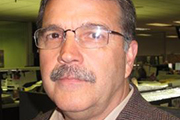
Mike Avila
Age: 59
Occupation: representative, Bricklayers Local No. 4
Education: Bishop Luers High School, Purdue University
Family: married, two children
Contact: mravila4@gmail.com
Why am I running for council: With the city responsible for so much infrastructure, and my background in construction, the job interests me.
Why should you vote for me: I've been in the construction industry for 40 years and on the Board of Works for the past two and one-half years. I'm a lifelong resident and have had a good life here.
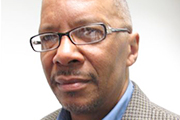
Kevin Brown
Age: 57
Occupation: Dana Corp.
Education: Snider High School, Ball State University
Family: Single, five children
Contact: kevinbrown3820@gmail.com
Why am I running for council: To help Mayor Tom Henry and because of his opposition to Republicans' elimination of collective bargaining for non-public safety employees.
Why should you vote for me: He served on the Fort Wayne Community Schools Board for four years, where the budget is larger and the problems greater.

Gina Burgess
Age: 43
Occupation: business development consultant
Education: Bishop Dwenger High School; Ivy Tech, IPFW, Trine University
Family: married, no children
Contact: voteginaburgess.com
Why am I running for council: I disagree with many of the city's financial and economic development policies.
Why should you vote for me: I'm the kind of person who will ask the hard questions no one else will.

Michelle Chambers
Age: 47
Occupation: Owner, “Signing Closers” notary company and “Your Virgin Hair Boutique”
Education: Englewood (Cal.) High School; Cal State Los Angeles
Family: Single
Contact: michelle@michellechambers4citycouncil.com
Why am I running for council: I want to be the voice of the voiceless. People feel as though they're not part of the process, like they're not included.
Why should you vote for me: Why not? I have the most practical experience and an insider's perspective.
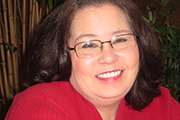
Cathy Cross
Age: 57
Occupation: student at Ivy Tech; Coast Guard veteran
Education: John T. Hoggard High School, Wilmington, N.C.
Family: single, one child
Contact: cathycross57@yahoo.com
Why am I running for council: My granddaughter was murdered in a day care in Arizona. I'd like to discover how we can do more to protect children.
Why should you vote for me: I've been more than two years in the grief cycle but I'm at the point to get busy. I have a unique perspective.
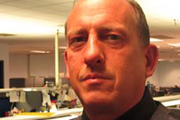
Lloyd Osborne
Age: 50
Occupation: business agent for International Union of Operating Engineers 399
Education: South Side High School, IPFW
Family: married, five children
Contact: lloyd19399@aol.com
Why am I running for council: After working 30 years on the executive side of things, I've been watching council for the last year and have become highly interested in the legislative side. Council needs more transparency.
Why should you vote for me: I've been active in the public, private and not-for-profit sectors for 30 years. I worked for 15 years at the Street Department.
*Candidates Tommy Schraeder and Daniel Loddell could not be reached.
Seven Republicans seeking party's three at-large city council nominations
Crawford seeking re-election; Marty Bender isn't
Seven Republicans are seeking the three nominations as at-large members of City Council, which represent and are elected by the entire city. Incumbent Marty Bender is not seeking re-election, but John Crawford is.
Robert A. Armstrong said he's been a fiscal conservative during his seven years on Allen County Council, where the main job is to oversee county spending. As a city councilman, however, Armstrong would promote policies such as continued downtown development, which he believes is both popular and important. A former critic of Parkview Field, he now sees its value.
“But we need to go back and focus on neighborhoods, too,” he said. “Fort Wayne was a “doughnut,” but now the outside is being eaten away. It shouldn't be the city telling neighborhoods what it will do, it should be the neighborhoods telling the city.”
Armstrong said he is concerned about the homeless and is not sure council is giving it the attention it deserves. He also praised Police Chief Garry Hamilton for taking steps to reduce the crime rate in 2014.
But he took exception with fellow Republicans on council, who last year unanimously voted to end collective bargaining for non-public safety city workers. As a former Wayne Township Advisory Board member, Armstrong said, he saw the effects of poverty and understands that “workers need representation. He also served on the Fort Wayne Community Schools Board from 2003 to 2007.
Armstrong has approved plenty of economic development incentives while on County Council, but said government must do a better job of making sure companies produce the promised investment and jobs in exchange for the tax breaks they receive.
“I've watched how money is spent (on County Council),” he said. “I hope to bring more openness and common sense (to City Council). I'm going to tell people to let me know what they think.”
Michael Barranda believes he would bring a unique view to council where economic development and conservative leadership is concerned “because I've done it” through work with the Chamber of Commerce's policy committee and other groups. Barranda wants to base job-creation incentives on “economics and more revenue, not favors,” and wants council to consider whether companies would locate or expand in Fort Wayne with or without abatements or other inducements.
As a member of the Young Leaders of Northeast Indiana, Barranda said he witnessed young people's political complacency and would work to change it. “I try to motivate my generation. They're paying attention but don't see how they can help,” he said.
Barranda said his campaign chairman, former Sheriff Ken Fries, will help him understand what can be done to combat crime. He called the southeast side a “great opportunity for private investment” but said infrastructure improvements or other incentives may be needed to offset perceived risks.
As for proposed riverfront development, Barranda said he will demand more than pretty pictures. “We need to have serious discussion about how it will benefit taxpayers, make an economic case,” he said. Barranda said the city should have sought ideas from developers first, instead of releasing a plan and then seeking developers and funding.
Vietnam veteran Lee Bradley has five chief concerns: economic growth, continued downtown improvement, revitalization of the south side, neighborhood improvement and helping the homeless.
He believes the city should work with private investors to operate a temporary reduced-rate “motel” to provide basic needs, help seeking benefits and mental-health counseling, “We must not put an additional burden on the taxpayer and this should not be a giveaway either,” he said.
Although Bradley is confident that “downtown is on target for growth,” he wants to attract more businesses there in order to attract more people and wants the city to “put the same amount of effort in the south side as we have downtown, and the neighborhoods as well.” Owners should be encouraged and helped if necessary to maintain and improve their properties, he added.
Bradley is concerned about how potential flooding could affect riverfront development, but supports limited use of Legacy funds for that purpose so long as private funds are also used. Bradley also believes council's elimination of collective bargaining last year should be “tweaked” in some way. “People need representation,” he said.
“Many of these areas go hand in hand,” he added. “We cannot have economic development without revitalization, and without neighborhood improvement.”
Crawford is still praised and criticized as the architect of the city's 2007 smoking ban – “it's the strongest in the Midwest, a model” – he said proudly – and more recently took a lead role in council's controversial decision to end collective bargaining for non-public safety city employees. But to Crawford, being unpopular from time to time is part of leadership.
“I'm good at saying 'no,' ” he said while noting that he ultimately said 'yes' to the city's multimillion-dollar Harrison Square project despite public sentiment against it at the time. Crawford also is impressed with initial riverfront plans and said he could support public funding for public spaces, but wants to see financial commitments from the private sector as well. “We need to work on the 'quality of place' for young people,” he said.
The city's Legacy fund could help make that happen, Crawford said, if it is conserved for “one big 'wow' project.” In the past, he has not supported other proposed uses of the money from the sale of the city's electric utility, such as $3 million for the University of Saint Francis' downtown campus.
Although Crawford said the city is in “pretty good shape” financially, he believes the city could cut spending dramatically by competitively bidding professional service contracts.
Crawford served on council from 1995 to 2007, when he was defeated before being re-elected in 2011. As a result, he knows political success is never guaranteed and plans to campaign that way.
“Your friends come and go, but your enemies accumulate,” he said.
Although Tom Freistroffer considers downtown revitalization very important, he calls neighborhoods the backbone of the city. And so he wants to listen to and invest in the people who live in them, reserving some of the city's Legacy fund to improve the places people live.
“I'd be more conservative, and use the money wisely,” he said, adding that he would also like to see the money invested in youth, riverfront development, housing and other “transformational projects that will help us in the future.”
Freistroffer says attracting and keeping good jobs in Fort Wayne is crucial to keeping the city's youth from seeking better opportunities elsewhere. To that end, he believes incentives should be targeted at businesses that pledge to remain here.
Freistroffer couldn't say whether he supports council's elimination of collective bargaining for most city employees, but believes workers' voices should be heard.
“I'm a people person, and I've worked hard for everything I've gotten, and I'm willing to put my nose to the grindstone (for the city),” he said.
When Teresa Sutton talks about the need for women on council, it's more than a campaign point or call for diversity. She insists it would make real difference and produce better results.
“I like to listen; men can shut you off. I'd like to help women- and minority-owned businesses, make council more aware,” she said. Sutton is skeptical of how the city's Legacy fund has been spent to date, believing some decisions have been made too quickly. The fund has gone to riverfront development and the University of Saint Francis, but she would prefer it be used to improve the local schools, believing that education is “our future.”
She also believes the city has spent too much on downtown improvements, neglecting the needs of other areas. “The city is 110 square miles,” she noted. She would conserve Legacy by operating like a foundation, spending the interest but not the principle.
As for council's decision to eliminate collective bargaining for non-public safety employees last year, Sutton said that decision, too, was made too hastily. She believes workers deserve a voice, and is “OK” with binding arbitration – a concept recently rejected by council's Republican majority.
“My campaign message is clear,” she stated “It's time for new views and attitudes.”
Eric Tippmann has no intention of spending a lifetime in politics – “I don't want to be doing this in 20 years,” he says – but he wants to be involved in the process now so he can use his experiences and good judgment to promote the common good.
Keeping young professionals in Fort Wayne requires a “hook,” he said, including projects that would include the area's quality of life. One such project, he said, would be the proposed World Baseball Academy at the Ash Center, which last year was recommended for $800,000 in Legacy funds that still have not been approved. The city's investment, he said, should be used to attract even more private funding for the project, which supporter say would bring tournaments and tourist dollars to town.
“We shouldn't have spent Legacy dollars on snow removal,” he said.
Tippmann said council has not been as diligent a it should be about looking for areas to cut spending but also said he would be open to considering higher taxes if the need could be justified. “It's up to the city to make the case. We're all in this together,” he said.
Tippmann supports the use of abatements and other incentives to create jobs, but also wants to see a mechanism for making sure companies fulfill their promises. “Council can't be a rubber stamp, it has to follow up,” he said. He supports council's elimination of collective bargaining for non-public safety employees.
Nine Democrats seeking three at-large City Council seats
Incumbent John Shoaff not seeking re-election
Three of City Council's nine members are elected at large, meaning they represent the entire city, not individual districts. Nine Democrats are seeking those three nominations May 5, and one of them is not long-time incumbent John Shoaff, who is not seeking re-election. In addition to the candidates listed here, Daniel Lobdell and Tommy Schrader will also be on the ballot.
As the former senior pastor of a major downtown church – First Presbyterian – Terry Anderson believes the area's ongoing revitalization is “exciting for the community.” He just doesn't it to come at the expense of neighborhoods, especially those in the southeast part of town.
“Southeast is a challenge. One thing I hear is that there aren't enough restaurants and businesses,” Anderson said, noting that last year's reduction in crime could improve perception of the quality life there and, in turn, promote growth. He supports use of Legacy funds to improve downtown, but believes “there should be a formula” to encourage private investment as well.
Anderson wants to provide a livable wage and affordable housing for all, and supports collective bargaining – something City Council eliminated last year for non-public safety city workers. He would work with the mayor to develop “neighborhood response teams” to develop a comprehensive community agenda and to address real-life needs. Council could be more involved in the community, he said, if it would schedule meetings at other times and at locations outside Citizens Square.
“I believe people with good minds and hearts can make good decisions,” said Anderson, who would encourage council to provide a forum in which people of various perspectives could discuss such issues as poverty, violence, civil rights and diversity.
A lot of people talk about promoting economic development, but Mike Avila would rather talk about creating “economic opportunity.” That means that when companies receive tax breaks but don't live up to their commitment to create jobs, they should have to pay some of their savings back. It also means council was wrong last year when it eliminated collective bargaining for non-public safety workers.
“There needs to be representation,” he insists.
Avila supports downtown revitalization and is especially enthusiastic about riverfront development. But “we have to remember that outlying areas need growth, too. There are areas ready for something to be done, and I like public-private partnerships,” he said.
Avila said the Henry administration and council have done a “pretty good” job of using the Legacy fund – he even supports using some of it to pay higher-than-expected snow-removal bills last winter. But he would like to see more oversight, and believes most of the fund should be preserved.
As for public safety, Avila calls it the city's top priority but concedes “you can't control criminal minds. You need to give police the tools they need.”
Avila said his experience in city government and private construction could be political assets, but admitted he will be challenged by trying to separate himself from the town just north of Fort Wayne.
“You spell my name with one 'l' ”, he said.
Kevin Brown, a member of the United Steel Workers union, Brown is especially interested in restoring collective bargaining rights eliminated by council's Republican majority last year. “Don't take the people's voice away, not in the 21st century. If I'm a disgruntled employee, I have no avenue (for grievance),” he said.
Brown believes the city has made “great gains” under Mayor Tom Henry, and support ongoing efforts to “make the city a better and safer place to live.” He supports riverfront development but also wants to conserve a portion of the Legacy fund “so future generations can enjoy it. Don't be frivolous.”
Brown would like to bring more jobs and economic opportunity to the southeast side, and is pleased crime dropped last year. The perception that the area remains unsafe must be addressed, however, he added.
“Pie in the sky is great, but I will learn how the budget operates, how to gain clout, how to get things done,” Brown promised.
When it comes to economic development, Gina Burgess is concerned that the city doesn't do enough to help small businesses. Although she doesn't object to granting tax breaks to big companies that produce lots of jobs – her husband works at General Motors, which has received numerous abatements – she questions incentives for companies that merely promise to “retain” existing jobs.
Although Burgess believes downtown needed to be improved, she doesn't want government to favor one part of the city over another. “We're pouring millions downtown but the (southeast) is like another community. Waynedale has been neglected too, and we're a town of pot holes, she said.
Skeptical of unions in the private sector, Burgess generally supports collective bargaining for government workers, “for their protection and ours.” And she said she is not a “happy camper” when it comes to the use of the Legacy fund, criticizing the city's $3 million grant to the University of Saint Francis' proposed downtown campus.
She suggested the rivers be cleaned up before promoting development along them, saying “people want improvements there; they don't want to pay for them.” She support an independent audit of the city's books, saying “there's too much debt. I can't track it”
“I'm not one of the mayor's picks, but at the end of the day I care bout this community. It has great potential, and I'm here for people,” Burgess said.
When Michelle Chambers left her home town for California in 1976, downtown was not a vibrant place. When she returned in 2012, she was so excited by the changes that she opened two businesses there. She wants to keep and expand that momentum – especially in areas that don't seem quite so vibrant.
“All four quadrants need to feel it. There has to be a partnership between community and the government,” said Chambers, who said she would use her experience as a redevelopment project manager in Carson, Cal., to boost opportunity here. She also helped develop anti-gang strategies while working for the city of Los Angeles, which she believes would provide council insight into the city's crime problems.
“I believe in smart growth. It's not about the dog-and-pony show. I'd know the appropriate questions to ask developers,” said Chambers, whose grandfather was the late Ed Elkins, well-known director of the East Wayne Street Center. “My mission would be to build on that family legacy. We need a vibrant core, but we have to expand it through the city.”
Chambers supports collective bargaining for city workers and is especially interested in bringing young people into the political process. “I want to bring 18- to 25-year-olds gto the table. They're looking for places to live and work,” she said. Chambers also serves on boards of the Metropolitan Human Relations and Renaissance Pointe YMCA.
"It really does 'take a village,' and Fort Wayne is a great village,” said Cathy Cross, who makes it clear she would use a seat on council to make Fort Wayne a community the is welcoming to all, especially those who need help.
To that end, she supports the Henry administration's proposal to begin an “urban farm,” and would like to expand it in order to provide opportunity and healthy food to more people. Cross also wants the city to do more to help the homeless.
“I've been (Tom) Henry's biggest cheerleader. I support everything he's done. He has great vision that is good for growth,” said Cross, who is excited about downtown improvements but wants to make sure lower-income people are not forgotten. Attractions for out-of-towners are also needed, she said.
She supports unions and collective bargaining and wants to bring jobs to the southeast side. Cross is concerned about the city's debt, however, and said she would support efforts to legalize marijuana for medical use.
“Stuff beats you down and people get discouraged. I'm just a citizen trying to help. Democrats need to show up and vote,” Cross said.
Lloyd Osborne, who has become a fixture at City Council meetings in large part because of the debate over collective bargaining, has no trouble listing the issues he would prioritize as a member of city council: public safety, empowerment of neighborhood families, the improvement of downtown without neglecting other areas and investment in infrastructure.
“We have to give police and fire departments what they need to do the job,” said Osborne, who would also work with neighborhood groups to promote economic growth, better streets and sidewalks and other improvements.
Osborne is a union man, but said that doesn't mean he's not willing to “look for ways to do things better.” He believes it's possible to represent employees while also protecting the interests of taxpayers.
He generally supports the way the city's Legacy fund has been spent to date, but added that there are times to “slow down, look at the long-term affects and not go through all the money. We need to have a shared vision, and that has to include citizens.”
Osborne said that, as an outsider, he doesn't have easy access to all the information or answers. “But I look forward to having the information I need to serve the community,” he said. “I want to be a voice for people who want to be heard.”



